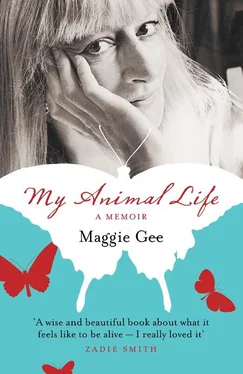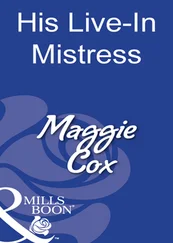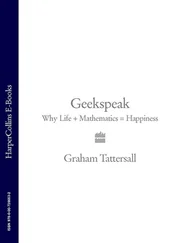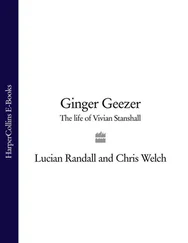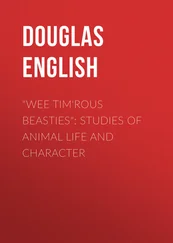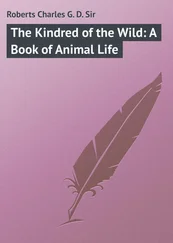But sometimes there’s good reason to be frightened. In 1990, Mum must have repressed her fear and her sense that something was wrong, as all her life she had repressed her emotions, tried to placate and please. She was a long way from home, amongst the almond blossom, with the balcony over the strip of beach and the blazing sea, taking the same dazzling walks every day, the same question waiting when they came back to the room. She had only her husband with her, with whom her habit was concealment. When her digestion became more erratic, there were other things she could blame: the hotel kitchens, eating too much or too little, the heat. Constipation, then diarrhoea. ‘I’m fine.’ But then she was home and the evidence was undeniable, brutal, she could feel it, hard, in her abdomen. Now she had to tell. ‘Vic, I’ve found a lump.’
But I don’t have to tell that story, not yet. I don’t have to see it all happen again. In life it came too fast, in this book I can keep her with me, my beloved mother, until her loss can be borne. And I have to remember (because tragedy sits heavier in the scale-pan than everyday contentment) that she told me, more than once, during those last Norfolk years of retirement, ‘I like my life, Marg. I hope you know I like my life. And when it’s just Dad and I, we get on fine.’ When the children were there, Dad was more ‘on edge’, she explained, ‘although you know he loves to see you’.
But she said, ‘I like my life.’ How many people can say as much? And she said something else as well, when asked. ‘After I went back, he never hit me again.’
There were things she could add up as triumphs. She drove the car (they got their first car in 1970, when they were both in their fifties; this in itself was a triumph); passed her test, to Dad’s fury and disbelief, before he did; as his eyes declined, she became for the last few years the only driver. Mum in the driver’s seat! She was a star in her creative writing class, popular for her quick wit, her one-liners, her Church gift for telling jokes. (Rarer in women, this talent bypassed me and went straight to my daughter. My husband says, ‘You’re funny but you can’t tell jokes,’ which is true; I can never remember the punch line, nor indeed the beginning.) She got her degree, her BA, from the Open University, aged sixty-four, and that mattered enormously to her. And the books she read for the politics and society modules filled her with indignant delight, fuelling the growing socialism she hid from her husband.
Why? Because she could not let him think the Gees had won the ideological battle. I remember sitting with her in the sunny kitchen-diner where Mum and the rest of the family always gathered while Vic presided alone in his red velvet Parker-Knoll armchair in ‘the front room’ next door, drinking crimson Ribena, often in a wine-red woollen waistcoat, mostly out of earshot though every so often he would call through, ‘What was that, Aileen?’ Mum was full of excitement about an article she was reading for her Open University course that told her the numbers of barristers, judges, top civil servants and cabinet ministers who came from public schools. ‘Eighty-five per cent,’ she announced to me happily, green eyes flashing across the kitchen table, smiling as if it was tremendous news; reinvigorated by this insight into a bad old world where nothing much had changed since she was small and poor — except that she and Vic and their children and other families like ours, by a miracle, thanks to the war and the welfare state and in particular free education, were no longer at the bottom of the heap, no longer poor, no longer working-class. ‘Can you believe it, eighty-five per cent!’
‘What was that Aileen?’ came through the tiny hall, past the two open, flimsy doors, his voice weaker with the Parkinson’s but still insistent, reluctant to lose its grip.
‘Nothing, Vic.’
There’s a saying, or maybe a song, ‘Lucky if you don’t get old before you get dead.’ Not true of my parents. They were lucky to get old, if not very old, because age was a destination, a place they could go as of right and be welcomed. Somewhere they could finally arrive. Another class, kinder and more comfortably furnished, offering them at last a respite from climbing the hill, and from pushing their children on. A narrow ledge in the light, before it went out; a small warm plateau.
What do children need? (parents)
Yes, parents. Since rights, really, are a luxury, a fiction, that’s all biology insists we have: parents. Egg and sperm, conjoined. And to be allowed to be born.
So really I am asking something different — what do children need to have a chance of happiness? What do they need to live their lives?
And ‘parents’ is still the answer. My parents, for all their difficulties, for all the moments they gave us of worry, and pity, despite the pressures and even the fear, were all the parents that I needed. They loved me greatly. I never doubted that. They loved all three children, ‘you kids’ — and always put us first. My father was really a frustrated artist, with the darkroom he loved where he developed large black-and-white photographs, some of them stunningly bold and good, but a time had come after the war when he had to make choices. Photographer or teacher? He chose the steady job, teaching, because he put his family first. And with that choice came some of the deformations of his character from which we suffered.
Children of course need space, food, water, the animal necessities, which most of them get, in the developed world. They need food that isn’t too faddy; so far as possible, they need foods that children have always eaten, because new ideas tend not to last. Skimmed milk, for instance, was the fad of my time; ‘healthy’ margarine of my mother’s. She changed over to Flora because it was better for us. Years later, we discovered it wasn’t. Just as we discovered, a few years ago, that whole milk contains more fat-soluble vitamins, more essential fatty acids, all things children need. My daughter had been drinking semi-skimmed milk, along with her parents, for most of her childhood. Sorry, Rosa.
Breast milk is so obviously best for babies that the success of formula milk is astonishing, after a hundred thousand years in which Homo sapiens raised their young without it. Not so astonishing, of course; formula milk frees women to work outside the home, which means, in the modern world, she can help feed the rest of her family. But breast must be best for the babies, except in those cases where the mother just can’t. (Not fair to blame the babies, though. How many times did I hear in clinics, ‘He won’t latch on properly,’ ‘She doesn’t seem to suck.’) With enough time, and not too much pressure, for the great majority of mothers and babies, it will happen.
What helped me? My mother, coming with my father to the University College Hospital bed on Christmas Eve, the day after Rosa was born, saw me ineptly nuzzling her to my hard dry breasts, swinging her from one side to the other, with exhausted arms, and said, with a delighted smile, ‘Isn’t she doing well?’ to my father. ‘Oh, Margaret, you are doing well.’ Which made me feel I was doing all right, and helped me stumble on till we found our own way, Rosa and I, as we fell in love, which with luck is what parents and babies do. Mum did what a parent should: she encouraged.
What didn’t help me was the hospital. In those days they had charts, which seems unbelievable now, that all mothers had to fill in, with a column for ‘LH’ and a column for ‘RH’, twenty minutes each side, to be ticked five times a day. Insane. Fortunately, there were a lot of mothers, all lying around annoying the nurses, so no one noticed I wasn’t doing it right. Rosa and I took much longer than that, and always did, for the nine months I fed her. If she had a long feed, she was perfectly contented, and at around four months, began to do something glorious afterwards, something which, in retrospect, looked forward to the teenage years when she began to sing: she produced, this little scrap of a thing, unable to talk, of course, or crawl, a sound we called her ‘milk song’, a humming, silvery sound that soared and dipped, tiny and pure, angel music. The sound of perfect happiness. In a few months, the song had gone. But Rosa and I had our animal bliss.
Читать дальше
